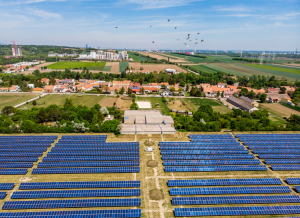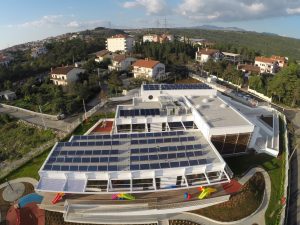Rijeka: The energy transition of Croatia’s seaport
Rijeka is Croatia’s most important seaport, and, with a population of 128,000 people, the country’s third-largest city. The city’s economy is largely dependent on shipbuilding and logistics. Selected as the European capital of culture in 2020, Rijeka is working hard on an energy transition. In 2009, Rijeka became one of the first cities in Croatia to join the Covenant of Mayors and committed to reducing its carbon emissions by at least 20% by 2020. The city achieved a reduction in CO2 emissions of 38 kilotons, or around 10%.
Rijeka has seen the largest number of renovations of apartment buildings in Croatia: the programme is under way and at least 123 apartment buildings will be retrofitted, with the help of EU funds (60% grant rate). While there is an increase in energy consumption due to newly built facilities, there will be an overall reduction in CO2 emissions.

